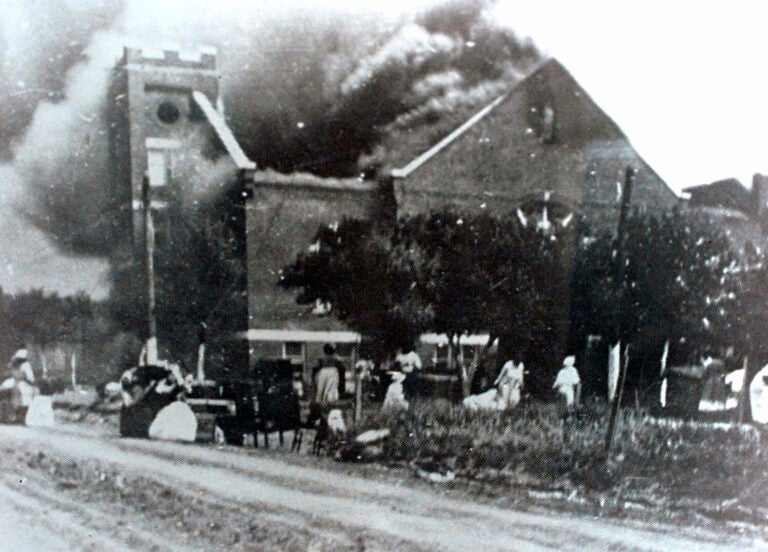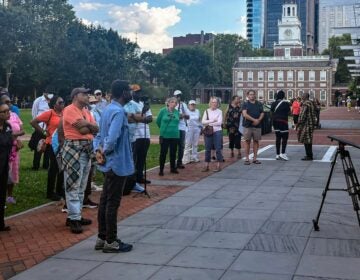The legacies of Juneteenth and the 1921 Tulsa massacre
First we discuss the history and importance of Juneteenth and the efforts to recognize it as a holiday. Then, we talk about the lasting impact of the Tulsa massacre of 1921.
Listen 49:00
FILE - In this 1921 file image provided by the Greenwood Cultural Center via Tulsa World, Mt. Zion Baptist Church burns after being torched by white mobs during the 1921 Tulsa massacre. Black community and political leaders called on President Donald Trump to at least change the Juneteenth date for a rally kicking off his return to public campaigning, saying Thursday, June 11, 2020. From Sen. Kamala Harris of California to Tulsa civic officials, black leaders said it was offensive for Trump to pick that date — June 19 — and that place — Tulsa, an Oklahoma city that in 1921 was the site of a fiery and orchestrated white-on-black killing spree. (Greenwood Cultural Center via Tulsa World via AP)
Guests: Ronald Brown, Phil Armstrong
Juneteenth, the day commemorating the freeing of the last slave in America, has been gaining attention in recent years. This year in particular brought heightened awareness of the holiday due to the blowback of President Trump’s plans to host his first post-COVID rally on that day, which he later changed. We begin today’s show talking with RONALD BROWN, founder and CEO of the Pennsylvania Juneteenth Coalition, which has long sought to bring attention to the significance of Juneteenth and has worked to get it officially recognized as a holiday both locally and nationally. Another cause for the blowback of President Trump’s next rally is the decision to host it in Tulsa, Oklahoma, where in 1921, a racist massacre took place against African Americans. Critics say that hosting the rally in the city in the midst of nationwide racial justice protests is insensitive to the concerns being expressed by demonstrators. PHIL ARMSTRONG, Project Director for The Tulsa Race Massacre Centennial Commission joins us to talk about what happened in his city in 1921 and why it is such a stain on American history.
WHYY is your source for fact-based, in-depth journalism and information. As a nonprofit organization, we rely on financial support from readers like you. Please give today.





